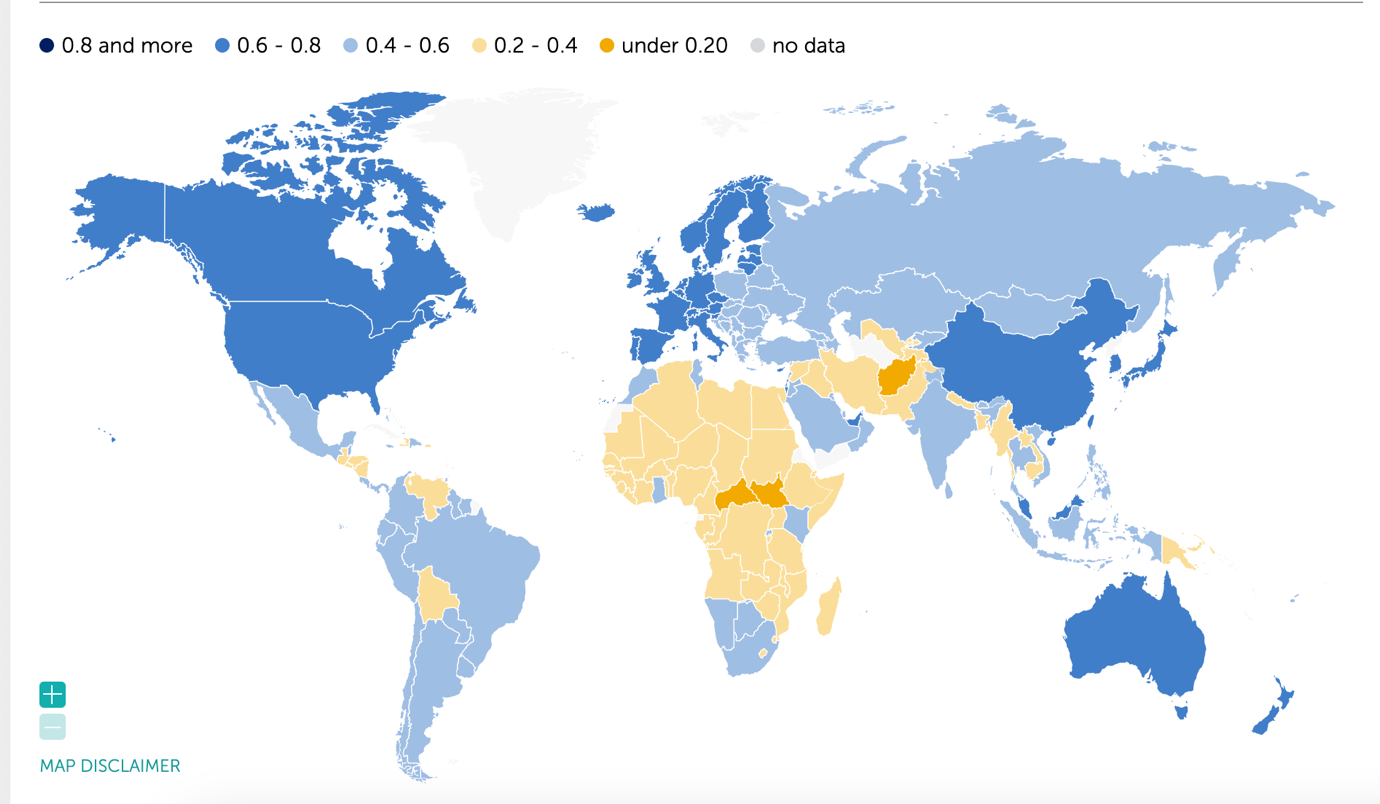The IMF recently released the AI Readiness Index, which evaluates 174 countries on their ability to adopt and harness AI to boost their economies. As expected, developed economies dominate the upper ranks. Overall, North America leads the regional rankings with an average readiness score of 0.74. According to the IMF study, Singapore is the most well-prepared country in the world for AI, followed by Denmark, the United States, the Netherlands, and Estonia in the top five.
Singapore’s top ranking is the result of years of substantial investment in AI infrastructure and talent. A 2020 study placed the country tenth, and its ranking has steadily improved since then. Despite having a population of only 5.5 million, Singapore has successfully attracted AI giants from neighboring Asian countries like China while maintaining strong ties with the West.

Despite being home to some of the world’s largest AI companies, China ranks 31st globally, trailing smaller nations such as Malta, Luxembourg, and Israel.
While developed economies are best prepared for AI, the IMF notes they are also the most vulnerable to its impacts. The Washington-based organization states, “[AI] could jeopardize 33 percent of jobs in advanced economies, 24 percent in emerging economies, and 18 percent in low-income countries.”
This disparity arises because advanced economies have a higher proportion of skilled jobs, which are more likely to be disrupted by AI.
Related: Elon Musk’s AI Discusses XRP Integration on X
Job loss due to AI remains a contentious issue. Some, like Goldman Sachs (NASDAQ: GS), predict that nearly 300 million jobs could be lost to AI automation by the end of the decade. However, other studies, including those by the United Nations’ International Labour Organization (ILO), suggest that AI will complement most professionals rather than replace them.
Africa remains the least prepared region for the AI revolution despite recent efforts to integrate the technology. South Africa holds the highest ranking in the region with a score of 0.5, followed by Kenya, Ghana, Rwanda, Botswana, and Namibia. Nigeria, despite being Africa’s largest economy and the most populous country in the region, ranks among the lowest.






